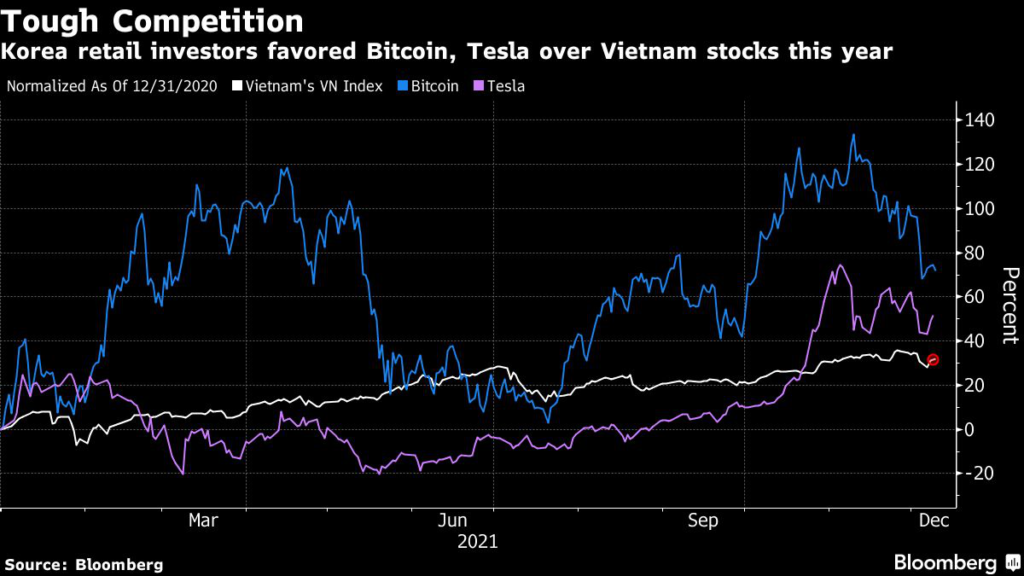(Bloomberg) — Foreign investors have been dumping Vietnam stocks all year, despite a surge to record highs. Competition from popular retail stocks like Tesla Inc. and cryptocurrencies looks like part of the reason why.
Korean retail investors — who made up 16% of net foreign inflows between 2017 and 2019 — are among those selling out, offloading a net $166 million worth of shares so far this year, according to data from the Korea Securities Depository. Their appetite for risk has shifted from emerging markets to the U.S., thanks to the strong returns in speculative assets there, analysts say.
“Bitcoin and U.S. stocks, especially tech growth stocks, showed big swings,” said Lee Soyeon, a market strategist at Korea Investment & Securities Co. “So investors were attracted to them, rather than Vietnam. Stock transactions are a little complicated and returns have lagged.”
Overseas investors have posted outflows in all but one month this year, despite the benchmark VN Index’s 33% gain making it the top performer in Southeast Asia. In total, they have sold a record $2.7 billion worth of shares in 2021, according to data compiled by Bloomberg.
“A lot of the foreign selling is simply profit taking,” said Stephen McKeever, head of the institutional client division at Ho Chi Minh City Securities Corp. “The market has performed strongly and some investors have cashed out,” with Korean retail investors switching their attention to U.S. tech stocks such as Tesla, he added.
Still, Vietnam watchers including BNP Paribas Asset Management’s Jessica Tea and SSI Securities Corp.’s Quynh Cao see positive long-term fundamentals in the country’s stock market and suspect foreign investors will come back. Demographics, Vietnam’s place in the Asian production chain and attractive valuations offer upside to equity investors, they said.
“We think the net foreign selling we have seen over the last two years is not necessarily reflective of foreign investor sentiment toward Vietnam which remains very positive,” said Ho Chi Minh City Securities’ McKeever. “We call this the sentiment paradox.”
More stories like this are available on bloomberg.com
©2021 Bloomberg L.P.











